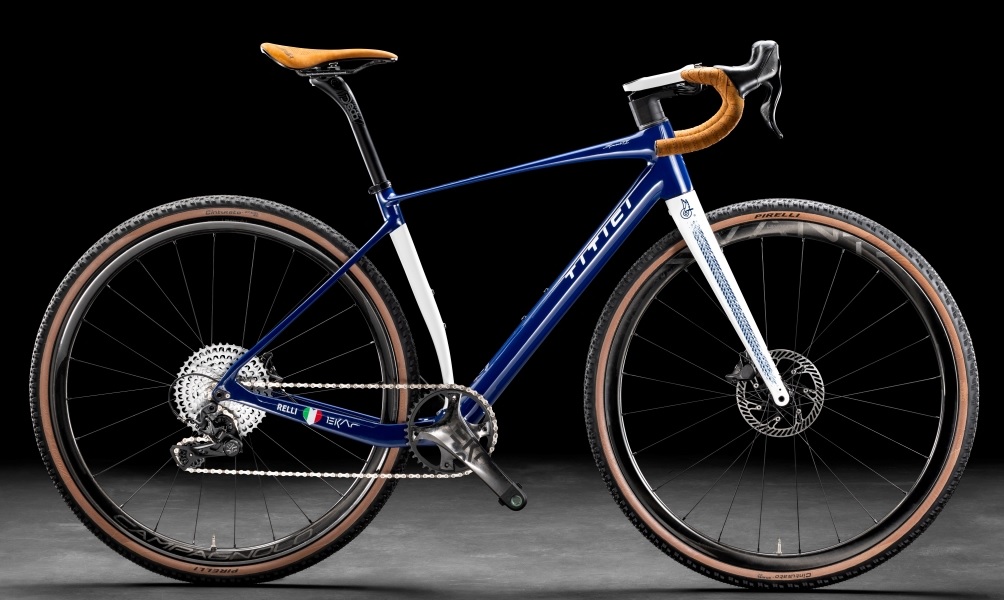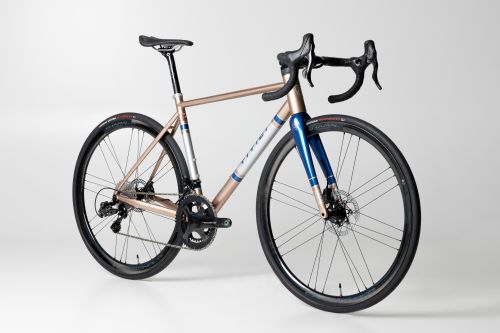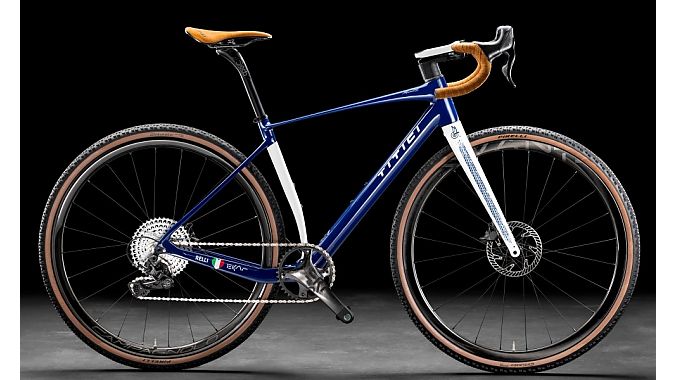A version of this article ran in the September issue of Bicycle Retailer & Industry News. If you are not receiving our magazine, please visit our subscription page.
ASOLA, Italy (BRAIN) — Industry veteran Steve Thomas calls Titici “a diamond in the rough,” referring more to the Italian brand’s presence in the U.S. than to its products, which appear to be anything but unpolished.
The brand dates to the early 1960s and was originally known as Tecno Telai Ciclo — a name that translates to something like “technical bicycle frame.” Sound out the acronym TTC and you get: “titici.”
Titici, founded by Alberto Pedrazzani, ran its factory in Italy for decades making frames for its brands and others. It was an early leader in BMX in Italy with its Fuego brand and was one of the first European brands to offer 29-inch mountain bikes.
About six year ago, the company was purchased by Trerè Innovation, a textile manufacturer based in the same area of Italy. Trerè, which dates to 1950, manufactures its brand of performance sports apparel, footwear and socks, including cycling apparel, called Unleash Your Nature, or UYN. Besides UYN, Trerè manufactures private-label textile products for a variety of clients. Except for its bicycles, all Trerè products are made with natural fibers.
Titici began targeting the U.S. market with its bikes in late 2023, hiring Thomas to open an office in Massachusetts. Thomas has been a sales executive for bike brands including Jamis, Parlee, and K2/ProFlex.
In the U.S. market, Titici focuses on building a dealer network of specialty retailers. The brand is not sold direct and Thomas said it is more focused on establishing a solid base of dealers than on unit sales growth. So far the brand has fewer than 10 U.S. dealers, Thomas said.
“We’re not about selling a bike in a box or selling bikes by the pallet load or the container load. Other brands are doing that, that part of the market is strong; we’re doing some different,” Thomas said.
In the U.S., Titici offers its European-made carbon fiber road, gravel and mountain bikes in unpowered and electric models. All models are available with custom component sizing and paint finishes, and 95% of the frames are available with custom geometry thanks to tube-to-tube construction that allows custom geometries. The brand has an online paint rendering website called 3Desire that allows customers to specify paint schemes. Most paint designs have no upcharge, but the company offers some special edition finishes, called Special TI, that include an upcharge. 
About 85% of Titici models are made in Europe; the company offers carbon fiber, steel and aluminum-frame models, but Thomas said the brand is currently not selling the aluminum models in the U.S.
Besides the novelty of a little-known Italian brand with a deep history, and the custom paint and sizing options, Titici stands out with a distinctive profile because of its trademark flattened toptube. The design is said to increase compliance by 18% and features top tubes as little as 7mm tall near the seat tube junction on some models.
“It’s a very different-looking bike,” Thomas said. The brand had a presence at the Sea Otter Expo this year, including a model in the FSA booth, which led to millions of impressions on social media and elsewhere, he said. “We probably sold 10 bikes because of that,” he said.
Completed bikes are drop shipped from Italy to U.S. retailers, with retail pricing starting at $5,299 for an entry-level gravel bike with SRAM Apex, up to $19,000 for a carbon road bike with Campagnolo Super Record EPS. Dealers on the East Coast pay $85 for air shipment and those on the West Coast pay $125. Dealer margins start at 36.5%, Thomas said. The company offers net 90 and net 120-day terms. Dealers are encouraged to stock a model or two on the floor as show models.
The company website is based in Italy with an English-language option and a dealer locator. Thomas said the brand is focused on “bottom-up” marketing including working with ambassadors who are shop employees or racers with a connection to local stores. “We are not a big believer in blasting consumer ads, we want to build a relationship with the dealers and the community,” he said.
“It’s a very cool company, they are really comfortable in their skin, which is why they can take a long-term approach to focus on dealer growth,” Thomas said.




